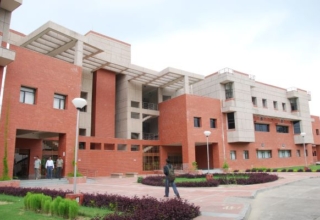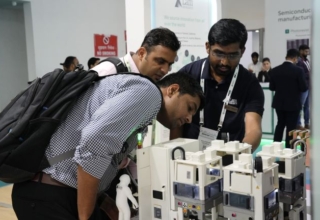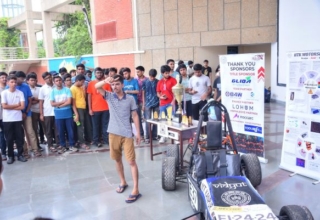
On June 13, 2014, the engineering education in country crossed a major milestone as India became the 17th country to join the select group of countries of Washington Accord (WA), an agreement that recognizes the substantial equivalency of professional engineering degree programs between the accrediting bodies of such programs in these countries.
THIS STATUS was granted to National Board of Accreditation (NBA), India along with The Institution of Engineers Sri Lanka at the meeting of the International Engineering Alliance, the parent organization of the WA in Wellington, New Zealand on June 13. In the case of NBA, recognition of programmes by other signatories applies only to programmes accredited by NBA that are offered by education providers accepted by NBA as Tier 1 institutions, which are 220 in number, a mere 5-6% of country’s estimated 5672 engineering colleges, which altogether churn about 1.5 million graduates annually. Nonetheless, this is a big achievement for India in the sense that the WA will help the mobility Indian engineers and engineers from India can register with the official registration body in these countries and also get legal protection while practicing in these nations. Prior to this, an Indian engineer wanting to practice abroad, had to fulfil certain requirements, in most cases, clearing an examination. It was only when an engineer went abroad on a contract with his company that he didn’t need the WA accreditation.
“Washing Accord is a hallmark of quality and with India becoming a permanent signatory, Indian engineers will be recognized at par globally and end discretion of the countries in allowing Indian engineers, It will save a year for them, “ says Shekhar Sanyal, Director and Country Head India of the UK-headquartered The Institution of Engineering & Technology (IET).
The Washington Accord Agreement recognises that: “Accreditation of engineering academic programs is a key foundation for the practice of engineering at the professional level in each of the countries or territories covered by the Accord.” It recommends that graduates of accredited programs in any of the signatory countries be recognized by the other countries as having met the academic requirements for entry to the practice of engineering. Generally, the signatories only accept accredited degrees earned from the date of acceptance of a signatory into the Accord. WA was formed in 1989 initially between UK, Ireland, USA Canada, Australia, New Zealand and subsequently is being expanded. The other permanent signatories include Chinese Taipei, Hong Kong China, India, Japan, Korea, Malaysia, Russia, Singapore, South Africa, Sri Lanka, and Turkey. There is a review every two years. Bench marking of standards for engineering education, of accreditation policies and processes is a major activity under the WA.
India has been making efforts from 2007 to enter this elite group, but it was only after the National Board of Accreditation (NBA) was made independent accreditation body in 2010 in the backdrop of corruption scandals at AICTE that it became a serious contender. The International Engineering Alliance (IEA), Secretariat of the Washington Accord, sent a Review Team in December 2013 and January 2014, to carry out a comprehensive review and audit of NBA accreditation systems and practices. The Review team submitted its report in March 2014. Reportedly several people, including R.M. Unnikrishnan of California State University, Fullerton, former NBA member secretary Dinesh K. Paliwal and education secretary Ashok Thakur, had played a significant role in pushing for the prestigious Washington Accord.
WA emphasizes on outcomes based approach which means the engineering graduate must have proven range of knowledge and skills, which means he or she should have undergone a rigorous training based on most relevant curriculum and pedagogy, which will guarantee his exact and cutting edge blem in Indian system came from the practice whereby AICTE approval was seen as final stamp of quality and accreditation was not being mandatory or sought.
performance internationally. “WA membership for India is very important from the point of view of opportunities that exist globally. For instance , the population of G-8 countries is ageing and there is a growing demand for quality engineers. If we’re able to cultivate a culture of quality through accreditation of our courses, it will be a boost for our engineering graduates, “ says Prof S. K. Kak Vice Chancellor, Mahamaya Technical University, Noida and member NBA. While mobility and acceptance in foreign universities was not much of a challenge for the IIT pass outs, this latest development will definitely help the graduates from other Engineering Colleges in the Country in coming years. According to Sanyal, the problem in Indian system came from the practice whereby AICTE approval was seen as final stamp of quality and accreditation was not being mandatory or sought.
Clarifying about GRE, Prof Kak says that GRE is still necessary like JEE for cbse students, the only difference now is that your country is recognized. It is expected apart from recognition for Indian engineering degrees, this membership will also ensure a minimum global quality for all engineering institutions in the nation. We hope that this will open vast and new opportunities for the India’s abundant talent pool. “ I see the real impact of this membership coming after five years as now the management of engineering colleges will begin to see merit of accreditation ,” adds Sanyal. Meanwhile NBA has asked the Tier-2 institutions to prepare themselves for becoming members of the Washington Accord. Universities have been asked to permit affiliated technical institutions to design at least 50 per cent of their programmes.. According to experts, engineers should have a good understanding of society, and also good management and communication skills, which this accord emphasizes. A welcome change for the notoriously ‘poor quality’ engineering education at last!
The upcoming Ashoka University situated in Sonepat (Haryana) has appointed noted sociologist, Prof Andre Beteille as its Chancellor, and historian-journaluist Prof Rudrangshu Mukherjee, as the founder Vice Chancellor of the University. Professor Beteille (National Research Professor and Professor Emeritus of Sociology, Delhi School of Economics) will head the Ashoka University’s Governing Body, its highest authority, while Professor Mukherjee (ex-Editor, Editorial Pages, The Telegraph) will lead both Ashoka’s Board of Management and its Academic Council. He will also guide the overall strategic direction and lead the day-to-day operations of the University.










